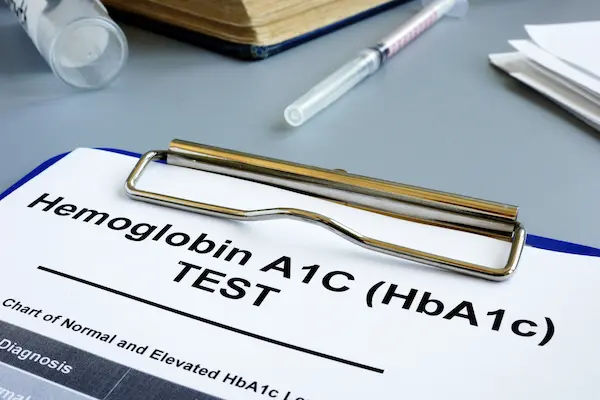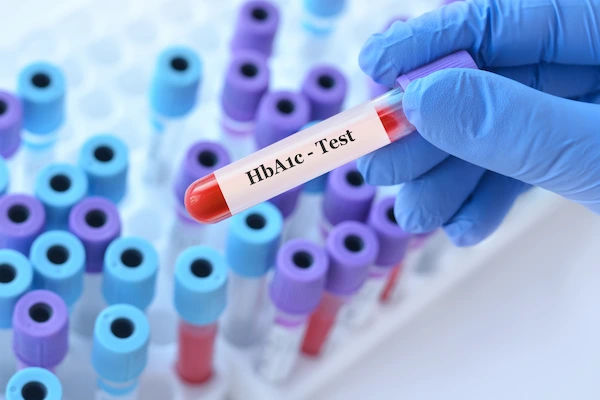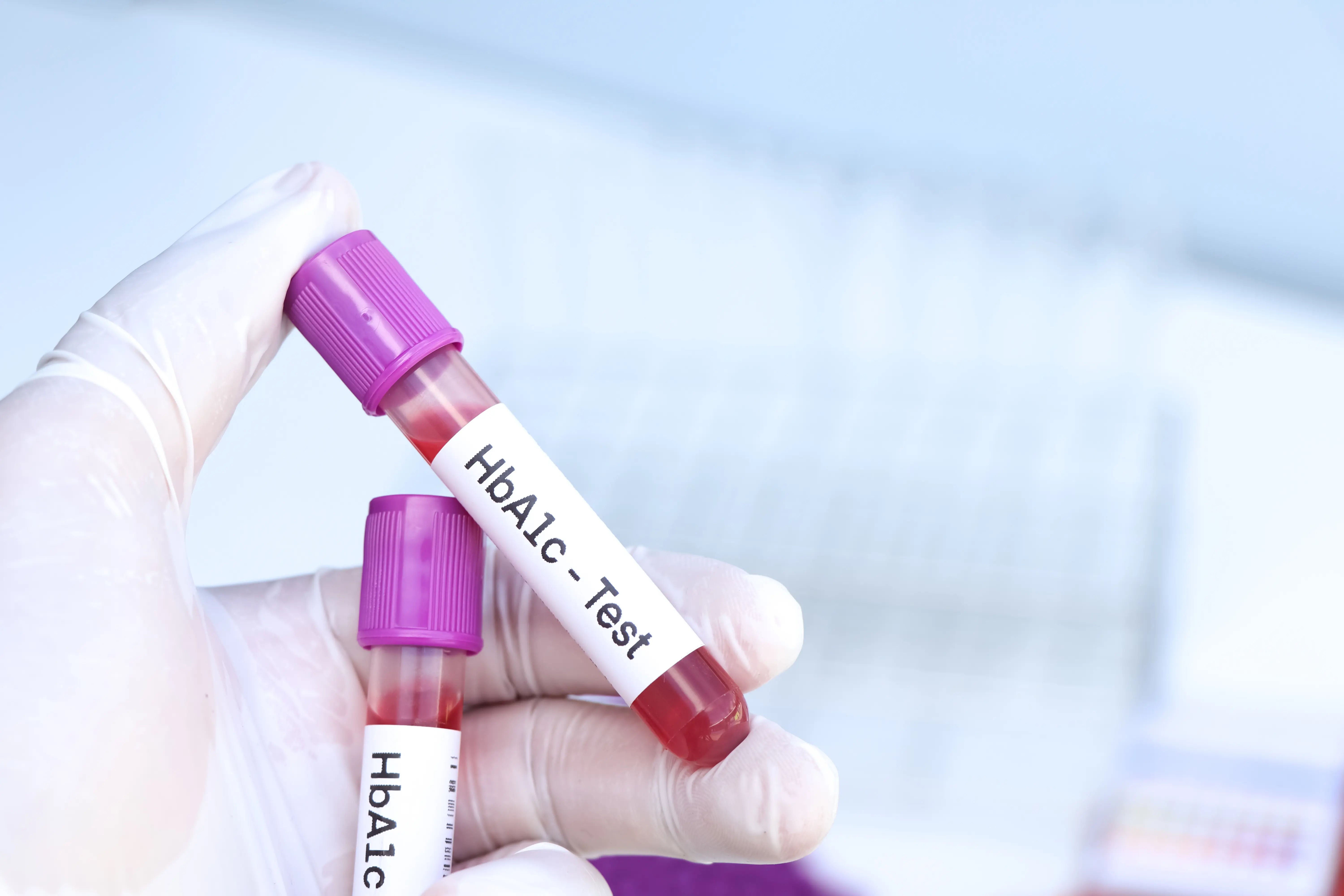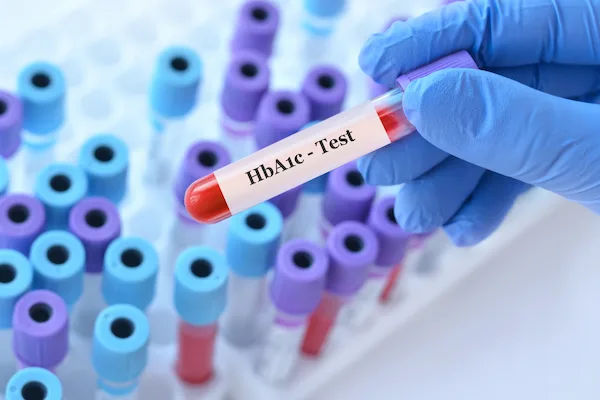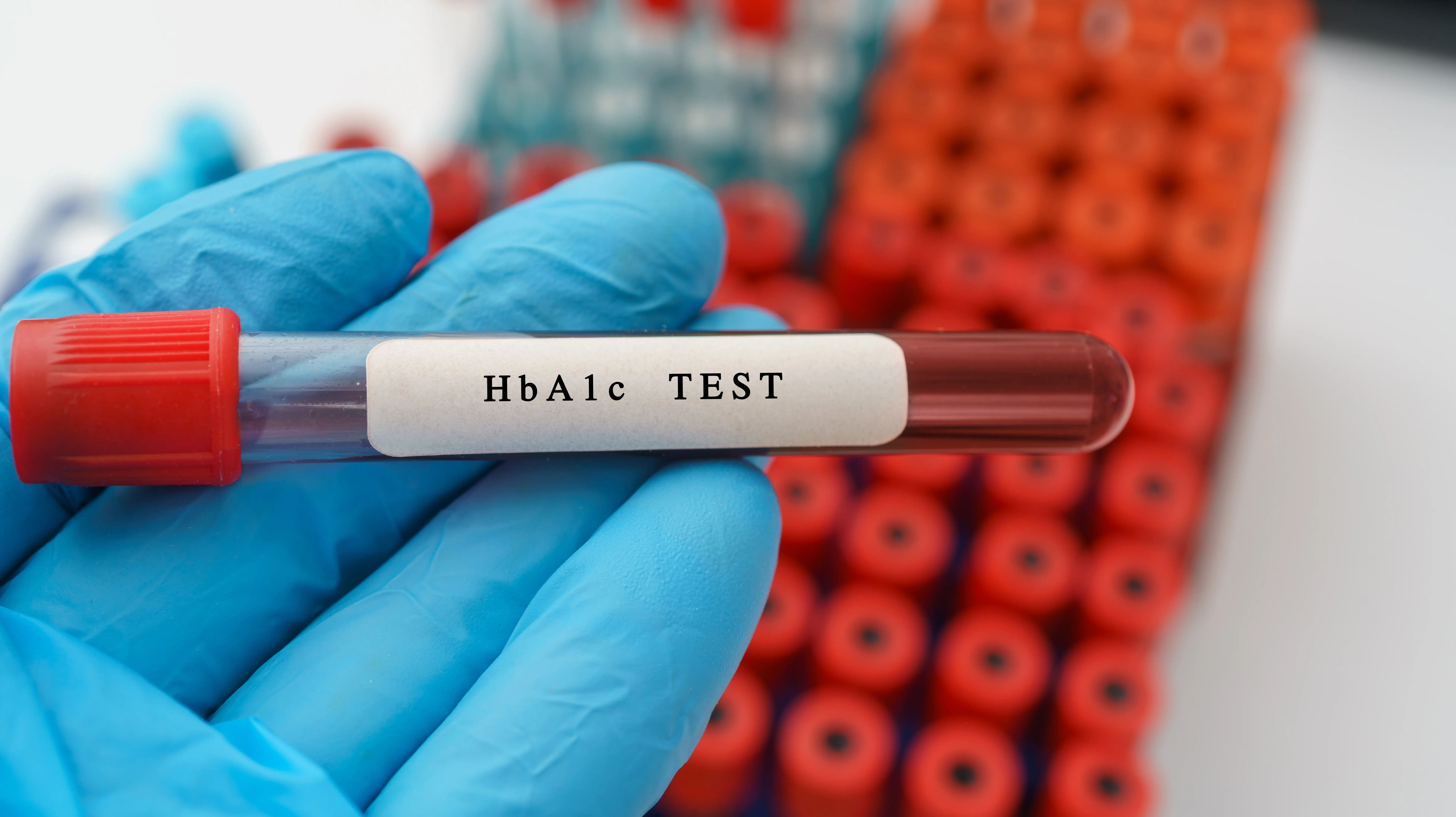Following a Low-Sugar Diet? How to Know It’s Actually Working
Know the role of a low-sugar diet in weight loss, progress confirmation and when to do a retest of HbA1c. Learn the track progress and how to achieve the desired health status.

Written by Dr. Rohinipriyanka Pondugula
Reviewed by Dr. J T Hema Pratima MBBS, Fellowship in Diabetes Mellitus
Last updated on 9th Sep, 2025

Several individuals cut down on sugary foods, turn to fruits instead of desserts and start monitoring their carb intake, following a low-sugar diet. These individuals may even start feeling better and may lose a bit of weight. But here’s the question: “Is the low-sugar diet working or helping in making a long-term impact on health?”
When it comes to measuring the real effect of dietary changes, especially for sugar control, individuals may need more than just a weighing scale; they may need data. And, this is precisely what the HbA1c test after diet changes can offer, a reliable and science-backed snapshot of internal sugar control over time.
This comprehensive blog will explore how to use the HbA1c test after diet, sometimes referred to as the sugar control success test, to assess the effectiveness of the low-sugar diet. Whether individuals are pre-diabetic, managing diabetes or simply health-conscious, the blog may help empower them to track, interpret and optimise their sugar-free lifestyle with confidence.
How HbA1c Confirms Progress Beyond Weight Loss?
Often, weight loss is considered a visible sign of progress. However, it is only a part of the picture, especially when sugar control is the goal for individuals.
What is HbA1c Exactly?
HbA1c (glycated haemoglobin) helps reflect the amount of glucose that is attached to Red Blood Cells (RBCs) over the past 2–3 months. Daily blood sugar monitoring can fluctuate based on recent meals or activity, but HbA1c offers a stable, long-term view of blood sugar trends.
Why HbA1c Test Matter?
Below are a few reasons explaining why the HbA1c test matters more than individuals think:
- Validating efforts scientifically shows whether sugar consumption reduction is genuinely impacting glucose levels.
- High sugar levels can damage blood vessels and nerves, even when the symptoms aren’t visible. Thus, it helps in catching silent risks.
- Weight loss can be misleading. Individuals may lose fat and still have poor sugar control, or vice versa.
- Even when the physical changes aren’t visible, an improved HbA1c may confirm that metabolism is moving in the right direction. This helps in revealing hidden progress.
- Individuals who are serious about making meaningful improvements to their metabolic health can opt for an HbA1c test.
Get Your Blood Sugar Levels Assessed
When to do a Re-Test After Diet Changes?
After choosing to stay away from sugary foods and drinks, individuals may wonder when to have an HbA1c test to see if it is making a difference to their health.
Understand the Testing Window
The Haemoglobin A1c test helps show the average blood glucose level over the lifespan of red blood cells, which is approximately 8 to 12 weeks. This may mean that the dietary improvements won’t be fully visible in the results until at least 3 months have passed.
Recommended Testing Timeline
Below are the recommended testing timelines individuals can follow:
- Before Beginning: Individuals can take a baseline test before starting a low-sugar or diabetic-friendly diet.
- First Follow-Up Test: Individuals can schedule their next HbA1c test 12 weeks after the initial test to assess changes accurately.
- Ongoing Monitoring: Individuals can re-test every 3 to 6 months, based on their goals, personal preference, and doctor’s guidance.
Benefits of Testing on Time
Below are a few benefits of timed testing:
- Long-Term Change: It helps track long-term changes, avoiding misleading short-term fluctuations in daily glucose readings.
- Timely Adjustments: If results do not improve, individuals can adjust their approach before complications develop.
- Motivates Consistency: Knowing when their next test is scheduled, individuals may feel encouraged to stay consistent on their path of healthy eating.
How to Track Before and After with One Panel?
To accurately evaluate progress, individuals need to treat their HbA1c testing like a personal health project, with clear before-and-after markers.
Here’s how individuals can step-by-step progress tracking:
Step 1: Individuals can record their HbA1c level before making any changes to their diet. This may help in becoming their reference point.
Step 2: Individuals can document specific changes they have made. For example, reducing sugar, intermittent fasting, and increasing fibre.
Step 3: Individuals can choose to do a re-test to compare results after 3 months against their baseline.
Step 4: Individuals can choose to stay consistent with periodic monitoring and make HbA1c test a part of their quarterly or biannual check-ups.
Below are a few other metrics to track together:
- BMI and Weight: This may help in correlating changes with physical fitness.
- Fasting Blood Sugar: This may offer a daily perspective.
- Cholesterol and Triglycerides: This may see improvement alongside reduced sugar intake.
- Mood and Energy Levels: Although subjective, these are essential indicators of improved wellness.
Thus, selecting a single panel that includes HbA1c, fasting glucose, and lipid profiles can help provide a clear picture of one’s metabolic health.
What Numbers to Aim for Based on Health Status?
The standard HbA1c range may include:
- Non-diabetic: Below 5.7%
- Pre-diabetic: 5.7% to 6.4%
- Diabetic Diagnosis: 6.5% and above
- Well-managed Diabetic: Below 7%
It is essential to understand the importance of these HbA1c ranges to stay proactive about health and prevent complications.
Below are also customised targets that one can aim for:
- Preventive Health Users: One can aim for <5.7%. Even if individuals don’t have diabetes, this shows excellent sugar control.
- Pre-diabetic Individuals: One can aim for <6.0% for reversing the condition or stopping progression.
- Type 2 Diabetes: One can aim for <7.0% but can consult a doctor to know if stricter control is safe.
- Elderly or High-Risk Patients: Targets may be relaxed to 7.5%-8% to avoid hypoglycaemia.
It is crucial to know the importance of targets that may reflect a person’s age, existing health conditions, lifestyle, and risk factors.Individuals may prefer not to rely on online charts and instead consult their doctors directly.
Book Diet Monitoring HbA1c Test at Apollo 24|7
Apollo 24|7 offers a seamless, at-home or in-clinic HbA1c testing experience to help individuals monitor their health on their terms. It makes the HbA1c test after diet easier, more affordable, and hassle-free.
Benefits of Using Apollo 24|7 for HbA1c Testing
Below mentioned are the benefits that the platform offers for HbA1c testing:
- Affordable Packages: Individuals can easily bundle HbA1c tests with other essential blood tests.
- NABL-Certified Labs: The platform’s labs adhere to trusted quality standards, ensuring accurate results.
- Quick Turnaround: The platform provides digital reports within 24 hours.
- Home Sample Collection: Individuals can book a test from the comfort of their own home or any other preferred location at a time that suits them.
- Integrated Healthcare Ecosystem: Individuals can also take guidance from the platform’s health advisors online for free.
How to Book a Lab Test at Apollo 24|7?
Individuals can do the following:
- Visit the Apollo 24|7 app or website
- Search for the HbA1c test
- Select the testing mode between at-clinic or home collection
- Schedule the test and pay online
- Get faster results and expert guidance from health advisors if needed
- Apollo 24|7 helps individuals transform health tracking so that they can stay focused on their goals.
Final Thoughts
For achieving long-term health, individuals can opt for a low-sugar diet. However, assumptions can be dangerous; hence, what they need is clarity, not guesswork. This is where the HbA1c test comes into play. The HbA1c test after diet allows people to validate their progress scientifically. Whether it is about preventing diabetes, reversing pre-diabetes or actively managing blood sugar, the test results will help tell the truth.
It is thus essential to opt for a sugar control success test to confirm that the dietary changes are on the right path. Individuals should focus on empowering themselves with data and taking control of their health trajectory. Take the first step today, book the HbA1c test with Apollo 24|7 to track progress from the inside out and start your sugar control journey.

